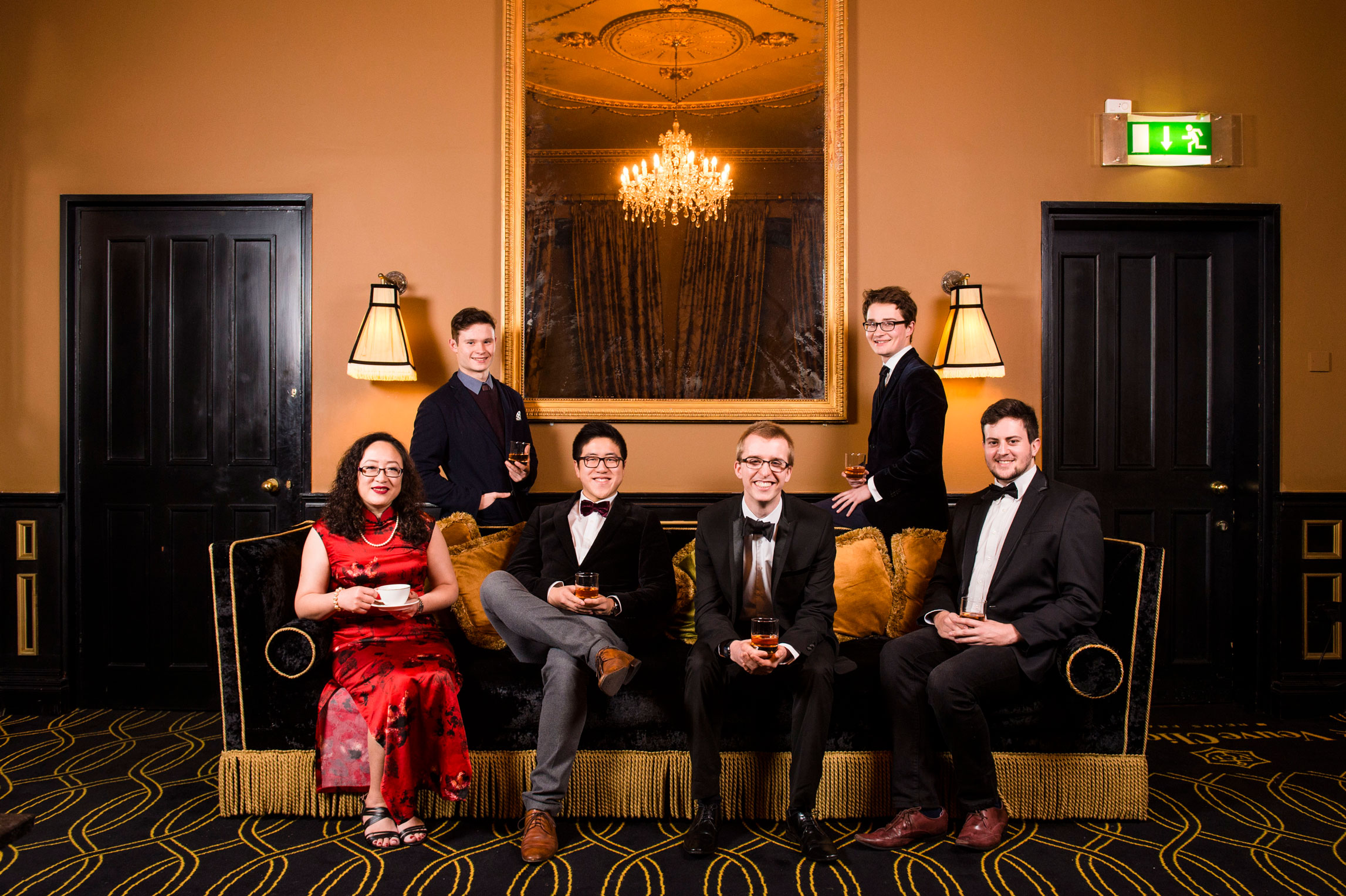You might have seen ‘Asian dad’ memes on the internet, poking fun at the famously high expectations of fathers from my part of the world. ‘You Asian, not B-sian,’ he says in one version. Or: ‘After homework, you can play… the piano.’ My personal favourite is a picture of a crying Chinese girl saying: ‘I only got 99 per cent in test. What do I tell my parents?’ Her father’s reply: ‘What parents?’
Much of Asian parenting is laser-targeted at getting into a top-tier university: Peking or Tsinghua would do in China; Ivy League or Oxbridge abroad. The last certainly brings its own challenges: how is an Asian teenager to penetrate Oxbridge, with its eccentric interviews, idiosyncratic pronunciations (Magdalen College) and other traps? The self-made educationist Monica Yang MBE has written a book (in Chinese) about how she did it. She migrated from Inner Mongolia to a council house in Belfast in the 1990s. From there, her son got to Grade 8 piano, became an all-Ireland champion of Latin American and ballroom dancing and excelled at Cambridge.
‘As for those children who came from unhealthy family backgrounds, I would do my best to keep my son away from them’
What was her secret? She reveals all in her book A Chinese Mother and Her British Boy. The chapter names promise a tiger-mum manual: ‘Is playing with friends a waste of time?’, ‘Parents are always right’ and so on. From a young age, Yang filled her son’s time productively. ‘Primary school in the UK is too relaxed,’ she complains to me. ‘All they do is play, play, play.’ So her son chose dance and piano as his extracurricular activities and, as a character-building exercise, had to stick to them. Not giving up on hobbies, she says, ‘trains focus and determination’.
Choosing friends is also important. Yang was worried that her shy son — who could speak only Chinese until he went to nursery — would have trouble making friends. So she made sure her house was open to the neighbourhood children and ‘deliberately helped’ his friendship with a smart kid from what she identified as a good family (father: forensic scientist, mother: lawyer). Curating friends, she says, is crucial. ‘As for those children who came from unhealthy family backgrounds, I would do my best to keep Bowen away from them.’
As early as the age of 12, Bowen knew what his target was. An aunt had asked him what he most wanted in the world: ‘Cambridge,’ came the answer, after much deliberation. It was the right one. Subsequent school life was geared towards academic excellence, including a fair amount of gaming the system. Yang recalls one of the biggest rows she had with her son was whether he should take chemistry or economics at A-level. He was top of the class in chemistry, but wanted to do economics. ‘I was a pretty ferocious tiger mother then. My thought was that he shouldn’t take risks. Four A*s were clearly better for getting into Cambridge than three A*s and one A.’
In Britain, parents determined to get their children into good schools tend not to talk about it, and pretend that they don’t care. In China, parenting guides sit where you’d expect to find self-help books. A Chinese Mother was warmly received: Yang’s book tour took her from Liaoning to Guangdong, giving TV interviews and well-attended talks along the way.
Nevertheless, this tiger mum was softened by Northern Ireland, especially as her son grew up. She spends much of the book extolling British parenting methods to her Chinese readers. The traditional Chinese family model is yanfu cimu (strict father, kind mother): the towering (and often absent) bad cop dad to a mum’s good cop. Yang reveals that Northern Irish fathers can often be found in the playground getting stuck in with their children, a role her husband duly emulated. Most of all, a British upbringing is good for inspiring critical thinking from an early age — unlike millions of Chinese children whose education is composed of rote-learning aimed at the next exam. It’s a problem that even the Chinese themselves recognise.
Yang laments that she ‘wrote the book too late’. A precursor was Harvard Girl Yiting Liu, published in 2000. That book consisted of diary entries Liu’s parents started making from primary school onwards and detailed how they got their daughter into the Ivy League with tailored parenting. Practices included controlling her diet, implementing a home-exercise regime ‘for character-building’ and, commendably, encouraging independent thought. Harvard Girl topped the bestseller list for 16 months. I was only six that year, but the book left a deep impression because it was all that any grown-up in China could talk about.
I spoke to Yang and met her son (who asked me what her book says as he can’t read Chinese). After decades in the UK, one thing continues to baffle her: ‘Why don’t poor families in the West value education? No matter how poor a Chinese family is, parents will always see studying as the way out for their children.’ I had no answer for her, but it struck me as a very good question. Perhaps I’ll also turn out to be a tiger mother.







Comments